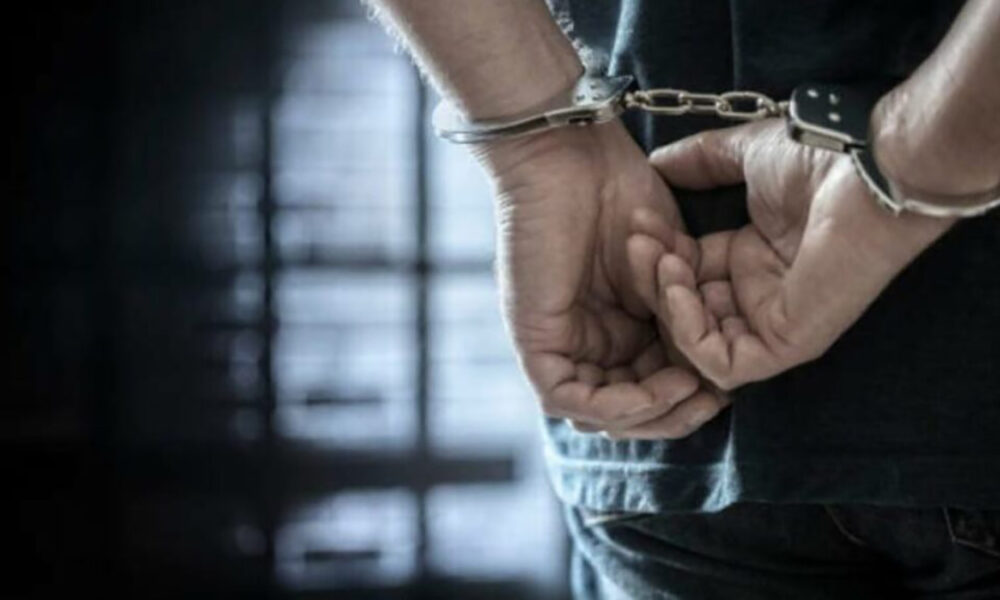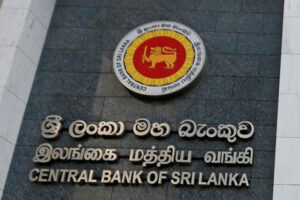
Investor Confidence Shaken as Violence and Political Arrests Cloud Economy
- CNL Reporter
- August 30, 2025
- Weekly Economic Review
- Political Arrests
- 0 Comments
Weekly Economic and Finance Review
Sri Lanka closed the week under a cloud of political controversy and rising security concerns, even as the Central Bank marked its 75th anniversary with important symbolic and policy milestones. The combination of slightly increasing reserves, ongoing debt repayments, heightened political arrests, and a wave of underworld-linked assassinations has significantly sharpened investor anxieties, undermining the narrative of stability carefully cultivated since the 2022 economic crisis.

Slightly Increasing Reserves and Debt Repayments
Sri Lanka’s gross foreign reserves were at US$6.144 billion at the end of July 2025, a slight increase from the previous month, as reported by the Central Bank of Sri Lanka and other sources. The reserves have seen little growth in recent months, despite positive trends in tourism and remittances.
While reserves remain above crisis lows, the erosion highlights the fragile external position, especially as the authorities continue to settle external obligations. By March this year, the Central Bank had already repaid nearly US$900 million to the Reserve Bank of India and US$209 million to the IMF. These repayments reduce immediate debt overhang but simultaneously drain liquidity, underscoring the delicate balance between credibility and cash buffers.
Central Bank’s 75th Anniversary and Rs. 2000 Note
The week also saw a major institutional milestone as the Central Bank celebrated its 75th anniversary. Governor Dr. Nandalal Weerasinghe’s oration emphasized monetary stability, reserve accumulation, and the Bank’s role in shielding the economy from renewed turbulence.

A commemorative Rs. 2000 note was also issued, with enhanced features for accessibility and security. While symbolic in nature, the launch reflects attempts to modernize the currency system and project institutional strength at a time when foreign investors are highly sensitive to perceptions of credibility and governance.
Economic Indicators Still Positive
On the data side, July Purchasing Managers’ Index (PMI) readings remained upbeat, with manufacturing at 62.2 and services around 70, pointing to expanding economic activity. Inflation, meanwhile, stayed subdued, with CCPI at -0.3% in July and NCPI inching up slightly to 0.7%, suggesting disinflation has bottomed out but without renewed pressure. The Central Bank continues to project growth of about 4.5% for 2025, contingent on export recovery and a steady flow of remittances and tourism receipts.
Violence and Political Arrests – Investor Confidence Hit
However, the more destabilizing developments of the week came not from balance sheets but from the streets and courtrooms. The island has seen an alarming surge in underworld-linked killings nearly 80 assassinations countrywide in recent months raising deep concerns over law and order. Investors often weigh security risk as heavily as fiscal indicators, and the perception that organized criminal networks can operate with impunity damages Sri Lanka’s attractiveness as an investment destination.

Compounding the problem, law enforcement has appeared more focused on pursuing high-profile political arrests than tackling violent crime although they arreastef a geoupm of drug kingpins IndOnesia.
The detention and remanding of opposition politicians, including former President and six-time Prime Minister Ranil Wickremesinghe, on allegations of financial misappropriation, has polarized the political landscape.
While anti-corruption measures are necessary, foreign investors typically look for transparency and due process rather than politically charged prosecutions. The optics of selective enforcement juxtaposed with weak action against escalating gang violence erode institutional credibility and raise the perceived political-risk premium.
Impact on Foreign Exchange and Investments
The fallout of these developments is likely to be felt across three channels:Foreign Exchange Inflows: Tourism, a major FX earner, is highly sensitive to perceptions of safety. Reports of widespread gang violence and political instability risk dampening tourist arrivals, especially from high-spending Western markets. Worker remittances may also see partial diversion into informal channels if uncertainty fuels expectations of rupee weakness.
Foreign Direct Investment (FDI): Large-scale investment decisions hinge on policy predictability and security. The combined effect of underworld killings and political arrests sends conflicting signals: on one hand, a government clamping down on corruption; on the other, weak law enforcement against violent crime and potential politicization of justice. This uncertainty encourages investors to adopt a “wait and see” approach, delaying projects and redirecting capital to more stable destinations in the region.

Capital Markets: Sovereign bonds and rupee-denominated instruments remain vulnerable to perception shifts. The June reserve dip already signaled tighter external buffers; layering political arrests and security risks on top of that widens risk spreads. Investors are likely to demand higher yields to compensate for the heightened risk, raising borrowing costs for both government and corporates.
Outlook
While the Central Bank’s policy signaling and institutional celebrations this week were designed to highlight stability, the broader narrative is dominated by insecurity and governance risks. Unless decisive steps are taken to strengthen law enforcement, reassure investors of due process, and maintain macroeconomic discipline, the country risks undermining the fragile recovery that has taken hold since the 2022 collapse.
Sri Lanka’s challenge moving forward is to prove that it can balance the demands of debt service and IMF program commitments with stronger rule-of-law enforcement and political stability. Only then will foreign investors regain confidence in committing long-term capital to the economy.

